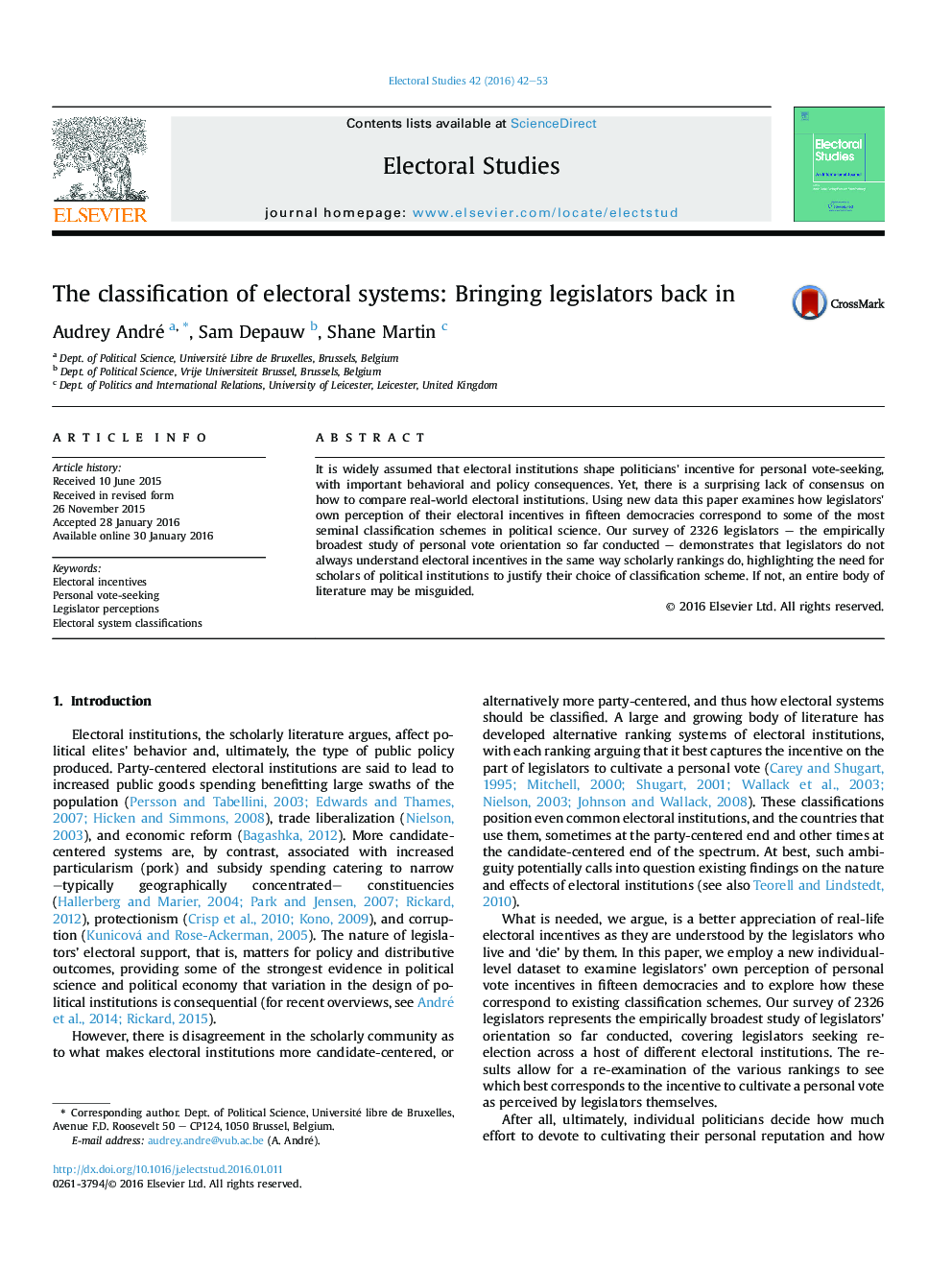| Article ID | Journal | Published Year | Pages | File Type |
|---|---|---|---|---|
| 1051671 | Electoral Studies | 2016 | 12 Pages |
•We identify the inconsistencies between 6 seminal electoral system classifications.•We compare legislators' own perception of the personal vote to the classifications.•We use new survey data in fifteen European countries to test their correspondence.•We find legislators do not always understand incentives the same way scholars do.•We test which system properties are salient in shaping personal vote incentives.
It is widely assumed that electoral institutions shape politicians' incentive for personal vote-seeking, with important behavioral and policy consequences. Yet, there is a surprising lack of consensus on how to compare real-world electoral institutions. Using new data this paper examines how legislators' own perception of their electoral incentives in fifteen democracies correspond to some of the most seminal classification schemes in political science. Our survey of 2326 legislators – the empirically broadest study of personal vote orientation so far conducted – demonstrates that legislators do not always understand electoral incentives in the same way scholarly rankings do, highlighting the need for scholars of political institutions to justify their choice of classification scheme. If not, an entire body of literature may be misguided.
